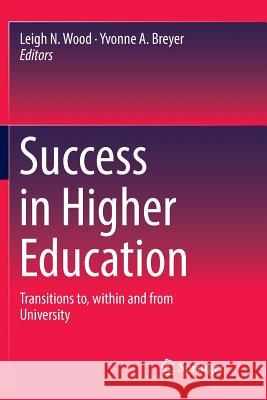Success in Higher Education: Transitions To, Within and from University » książka
topmenu
Success in Higher Education: Transitions To, Within and from University
ISBN-13: 9789811097058 / Angielski / Miękka / 2018 / 361 str.
Kategorie:
Kategorie BISAC:
Wydawca:
Springer
Język:
Angielski
ISBN-13:
9789811097058
Rok wydania:
2018
Wydanie:
Softcover Repri
Ilość stron:
361
Waga:
0.53 kg
Wymiary:
23.39 x 15.6 x 1.98
Oprawa:
Miękka
Wolumenów:
01
Dodatkowe informacje:
Wydanie ilustrowane











